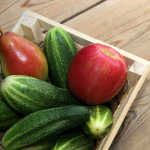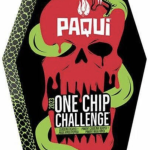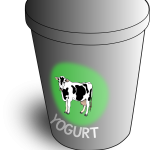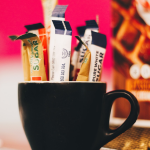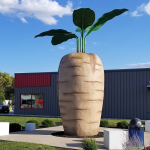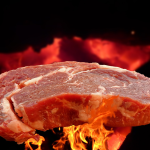An ACSH.org reader wrote to us, asking if we would investigate a controversy surrounding Apeel, a protective coating that's applied to some fruits and vegetables. Cucumbers and apples help us sort through the issues and determine whether consumers should be concerned.
Food & Nutrition
The "One Chip Challenge" – a ridiculous exercise in pain endurance – where people are dared to eat Paqui brand chips "flavored" with increasingly hot peppers may have been the cause of death of a 14-year-old boy who ate a single chip. But Paqui tries to portray their product as "healthy," for example, GMO-and-preservative free. What a bunch of BS.
Remember plant-based meats? Ok, then how about plant-based yogurt? Roughly 6.3% of the dairy consumed finds its way into yogurt. The environmental footprint of the producers of that yogurt is significant. How does plant-based yogurt measure up nutritionally against the classic?
In a recent article in the New York Times about fraud in the dietary supplement industry, Rina Raphael recognized ACSH's work in the field by quoting Josh Bloom, the director of chemical and pharmaceutical science. We all thank Ms. Raphael for using ACSH as a resource.
"The United States needs resilient, diverse, and secure supply chains to ensure our economic prosperity and national security.” – Executive Order #14017
“The pandemic and recent supply chain disruptions have revealed the perils of a national food system that depends on capacity concentrated in a few geographic areas and requires many steps to get from farm to fork. In order to be more resilient, the food system of the future needs to be more distributed and local.” – the USDA response.
Artificial Intelligence (AI) is playing an increasingly important role in health care. This could lower costs and streamline patient interactions—but the technology has a dark side, too. Critics of "ultra-processed" food often claim that certain snacks aren't even food. Let's debunk this myth, with a special focus on Pop-Tarts.
According to the common narrative, ultra-processed foods are evil, unhealthy, and unnatural. But a new contrarian study in the Journal of Nutrition demonstrates that a diet containing 91% ultra-processed foods was far healthier than the typical American diet and, get this, well aligned with Dietary Guidelines for Americans. When it comes to shaming and blaming UPFs, the emperor has no clothes.
Can a degradation product and chemical used to make sucralose – sucralose-6-acetate – damage our DNA? As is often the case, it depends. Here, it's about your metric of DNA damage and your exposure. Leaving the scary headlines and media confabulation behind, here's a breakdown of the study.
New York State's legislators are about to place drastic restrictions on neonicotinoids ("neonics"), a popular, safe, and effective class of pesticides. They're putting the bogus claims of activists ahead of the welfare of consumers and farmers. Let's hope Governor Hochul will be more sensible and veto the bill.
One of the (many) overhyped "miracle cures" we're seeing constantly is apple cider vinegar. Sure sounds nice, right? Of the dozens of health claims about the stuff perhaps the claim that it treats heartburn and acid reflux makes the least sense since vinegar is acidic enough to dissolve steel wool. What's the deal?
Nitrates – widely used preservatives – are found in a variety of foods. Are they good or bad? After all, they can form nitrosamines, recognized carcinogens. A new study uses the metaphor of Dr. Jekyll and Mr. Hyde to separate science truth from science fiction. Here’s what I learned.
Do condescending "food experts" make you feel like a war criminal for eating a so-called "unhealthy snack?" If so, there's a pretty good chance they're pontificating about something like a Twinkie. Or maybe a Pop-Tart. Is a Pop-Tart a food? A lab creation? Or a death sentence? All the yummy answers are here!
